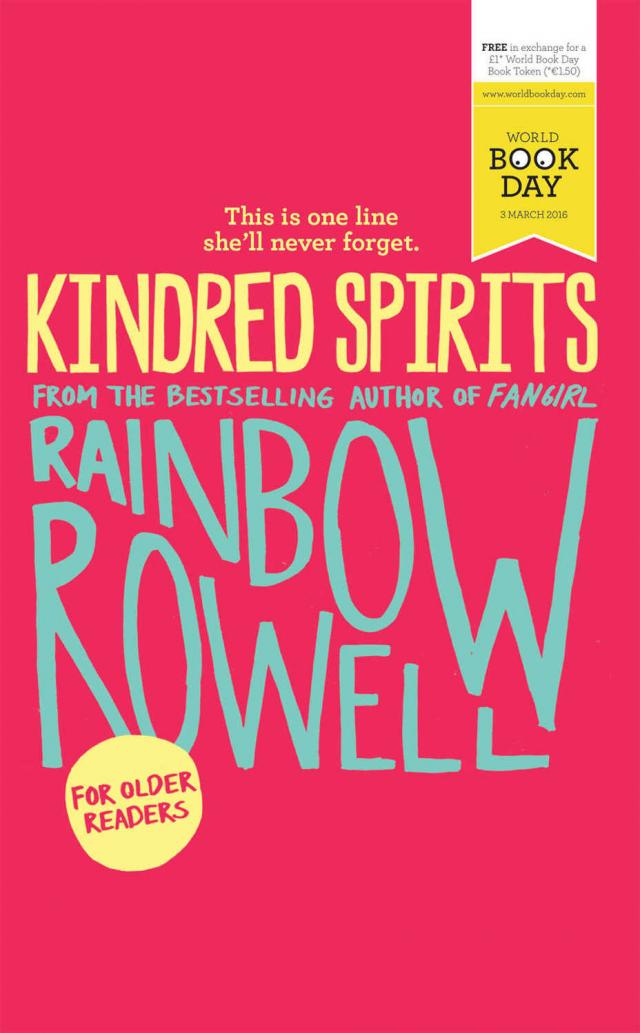

The social tensions between subsets of the magical community added a dark edge to the story’s whimsy, and the frequent, dramatic fight scenes held me in persistent suspense. The writing style didn’t wow me (aside from the humour), but the plot had plenty of twists and the pacing was consistent (good pacing is so underrated).

I’m also a major sucker for the enemies-to-friends trope, so watching Simon and Baz begin to see the wonderful qualities each other possessed, and overcome long-standing distrust for one another warmed my heart. The multiple POVs work especially well for Rowell to narrate the two protagonists’ growing closeness, but also gives us insight into most of the secondary characters’ feelings. I love a good redemption arc, so his transition from antagonist to protagonist was delightful. His biting sarcasm was brilliant and I enjoyed his ability to move between aloof and concerned in the blink of an eye, as well as his growing awe of Simon. Without a shadow of a doubt, Baz was my favourite character. Then there’s Baz who is everything and nothing like Draco Malfoy. (I don’t count Agatha as Ron because she was such a wet towel.) Their style of spells and the lack of a ‘Ron’ character also set the story apart from a Harry Potter novel. Penelope is POC and enjoys breaking rules in a way that Hermoine never did, while Simon is LGBTQIA+ and can’t always control his magic without it ‘going off’. The characters are certainly unique it’s easy to tell that Simon is a variation of Harry, and Penelope is Hermione’s alter ego, but they have their own idiosyncrasies that make them different. I know some reviews have criticised the book for copying Harry Potter, and in certain chapters I’d agree that the genre conventions were too similar, but for the most part the book was unique enough in its own right to not be overshadowed by HP. For some, this dichotomy might be too offbeat, but I found it added to the quirks of the book. The spells in particular are a great example of the author not taking herself too seriously although some characters have incredible power, they still have to use old songs or cliched phrases to summon that power, making the fight scenes a mixture of magical action and frivolous words. It isn’t malicious or unkind, it’s just Rowell using tropes we’re all familiar with and making light of them to show us how fun and silly they can be in another context. I also enjoyed the way the book pokes fun at Harry Potter (in particular) and the fantasy genre (in general). Carry On‘s sense of humour matches my own perfectly.


The dialogue between Simon and Baz is a constant source of entertainment and there are witty quips that managed to completely take me by surprise. It’s been a long time since a book made me laugh out loud unabashedly so many times (12 by my count), and I loved that feeling. I’ve read a couple of reviews saying it was funny, but wasn’t expecting it to be absolutely hilarious. This book is delightful in so many ways, but it’s the humour that elevates it from great to brilliant. Baz would be having a field day with all this, if he were here - it’s their last year at the Watford School of Magicks, and Simon’s infuriating nemesis didn’t even bother to show up. His mentor’s avoiding him, his girlfriend broke up with him, and there’s a magic-eating monster running around, wearing Simon’s face. Half the time, Simon can’t even make his wand work, and the other half, he starts something on fire. And Baz might be evil and a vampire and a complete git, but he’s probably right. Simon Snow is the worst Chosen One who’s ever been chosen. I’d wake up every morning and think, ‘This will end in flames.'” “You were the sun, and I was crashing into you.


 0 kommentar(er)
0 kommentar(er)
